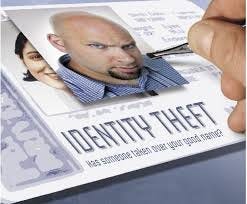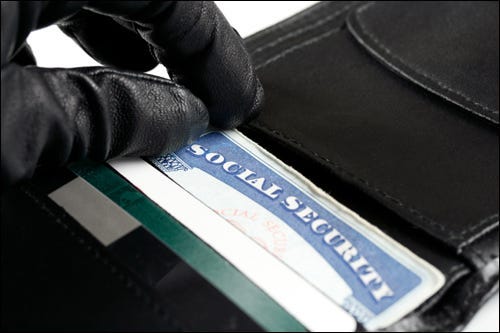Identity Theft the Fastest Growing Crime of the 21st Century
Mack Jackson Jr, Cybersecurity Consultant
So much of our personal information is online, like social media sites and financial institutions. We need to be on guard 24/7 to protect and manage our identity and privacy. Cybercrimes like Identity theft have many harmful and costly consequences for our privacy. Typical identity theft crimes include mortgage, financial, and medical fraud. These crimes rob entrepreneurs, small and medium businesses, and large corporations of time and money. Individuals need to be more aware of the risk of Identity Theft. The best defense against cybercrime is education.
Identity theft crimes refer to the crime of someone wrongfully obtaining and intentionally using another person or business data, which involves deception and fraud. Cybercrimes provide financial gain to criminals, which costs you and your organization time and money. Criminals use stolen information to apply for credit cards, loans and make withdrawals from the victim’s bank accounts. Fraudulently, criminals use online accounts to obtain privileges or goods that they might not be able to purchase using their real names.
Cybercriminals are always searching for ways to steal information. According to the Federal Trade Commission, businesses are the # 1 source for identity theft crimes. Companies need to be compliant with the latest regulations, policies, and procedures to prevent data breaches. Stolen individuals’ information from businesses includes data like name, social security number, driver’s license, financial, or medical records in digital or paper format. These terms are an individual’s personal, identifiable information (PII). How do criminals access information from businesses? Criminals can access information by an unauthorized user, insider theft, phishing email, physical theft, negligence, or errors. The biggest threat to businesses from cybercrimes is the loss of revenue, damage to brand reputation, the possibility of fines, or legal liabilities.
Recently there have been several data breaches reported in the media from large corporations to government agencies. In 2018, Equifax exposed over 100 million user records. The US Office of Personnel Management experienced a data breach of millions of government employees. In 2017, the Marriot data breach exposed over 100 million hotel guest records. According to the US Justice Department, 97% of all retailers have been breached by a cyberattack. Last summer, 2019, the MGM resort experienced a data incident that exposed over 10.6 million records of resort guests. The information from the MGM breach is now found in the Darknet for criminals to purchase. The Darknet is an online market for buying and selling identities where cybercriminals can sell information anonymously. If cybercriminals can attack these large corporations, just think about the small business owner with thousands of records regarding customers, employees, and vendors that are vulnerable to cyberattacks.
In a global effort to combat the threats of cybercrimes, state and federal legislators have passed laws that regulate companies to protect consumer information. A recent example is the Equifax breach, where the US Security and Exchange Commission has enforced rules and penalties on the company for negligence.
We can protect and mitigate the damages of cybercrimes by using security awareness through the education of employees on prevention. To learn more about how to protect your business from the threats of cyber incidents, contact cybersecurity awareness consultant Mack Jackson Jr.
Contact Mack Jackson Jr.
Website: http://www.mackjacksonjr.com
FaceBook Mack Jackson Jr
FaceBook Technology Review TV
Linkedin: http://www.linkedin.com/in/mackjacksonjr
Twitter: http://www.twitter.com/mackjacksonjr
Patreon: http://www.patreon.com/mackjacksonjr






